Western Nghe An's specialty smoked kitchen products are in high demand near Tet.
(Baonghean.vn) - Dishes with rich flavors typical of the ethnic minorities in Nghe An such as beef jerky, smoked pork, Chinese sausage... have become specialties, sought after by many people to enjoy or as gifts during Tet.
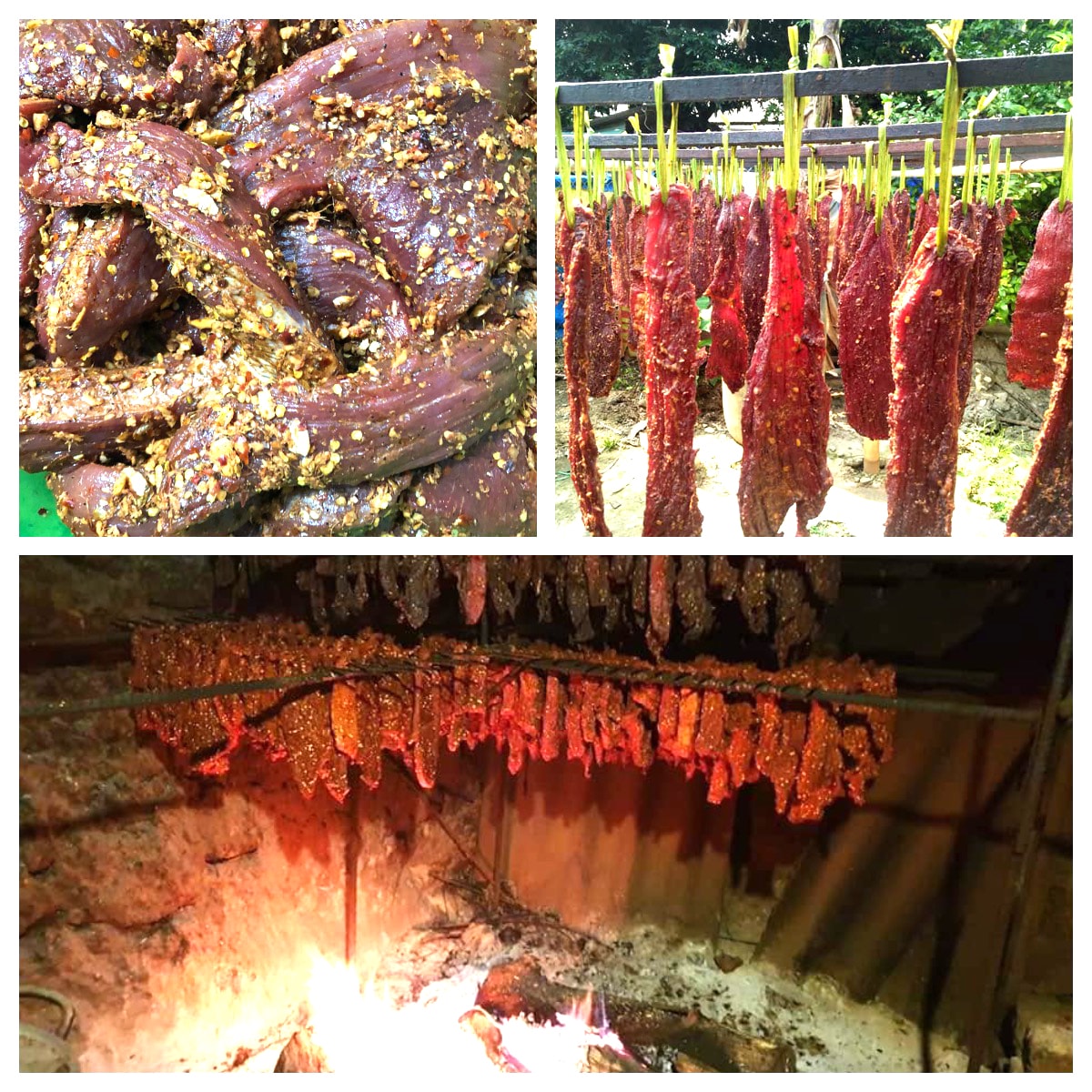 |
| Every 3.5kg of fresh beef produces 1kg of beef jerky, so the price of beef jerky is quite high, ranging from 1-1.1 million VND/kg but is still popular with consumers. Photo: Thanh Phuc |
From the 10th lunar month to Tet is the busiest time for businesses.beef processing facility, smoked pork, Chinese sausages... in Con Cuong, Tuong Duong, Ky Son, Quy Chau, Que Phong districts.
Ms. Nguyen Thi Thao, owner of Thao Duong smoked specialties production facility in Hoa Bac block, Thach Giam town (Tuong Duong) said: “In the past, food was dried in the sun and hung in the kitchen loft as a way of preserving food for the people in the mountainous areas when there were no refrigerators or freezers. With this method, highland dishes such as smoked beef, smoked pork, smoked fish, etc. became specialties with their own delicious taste. For about 10 years now, these smoked products have become specialties, goods favored by people in the lowlands.”
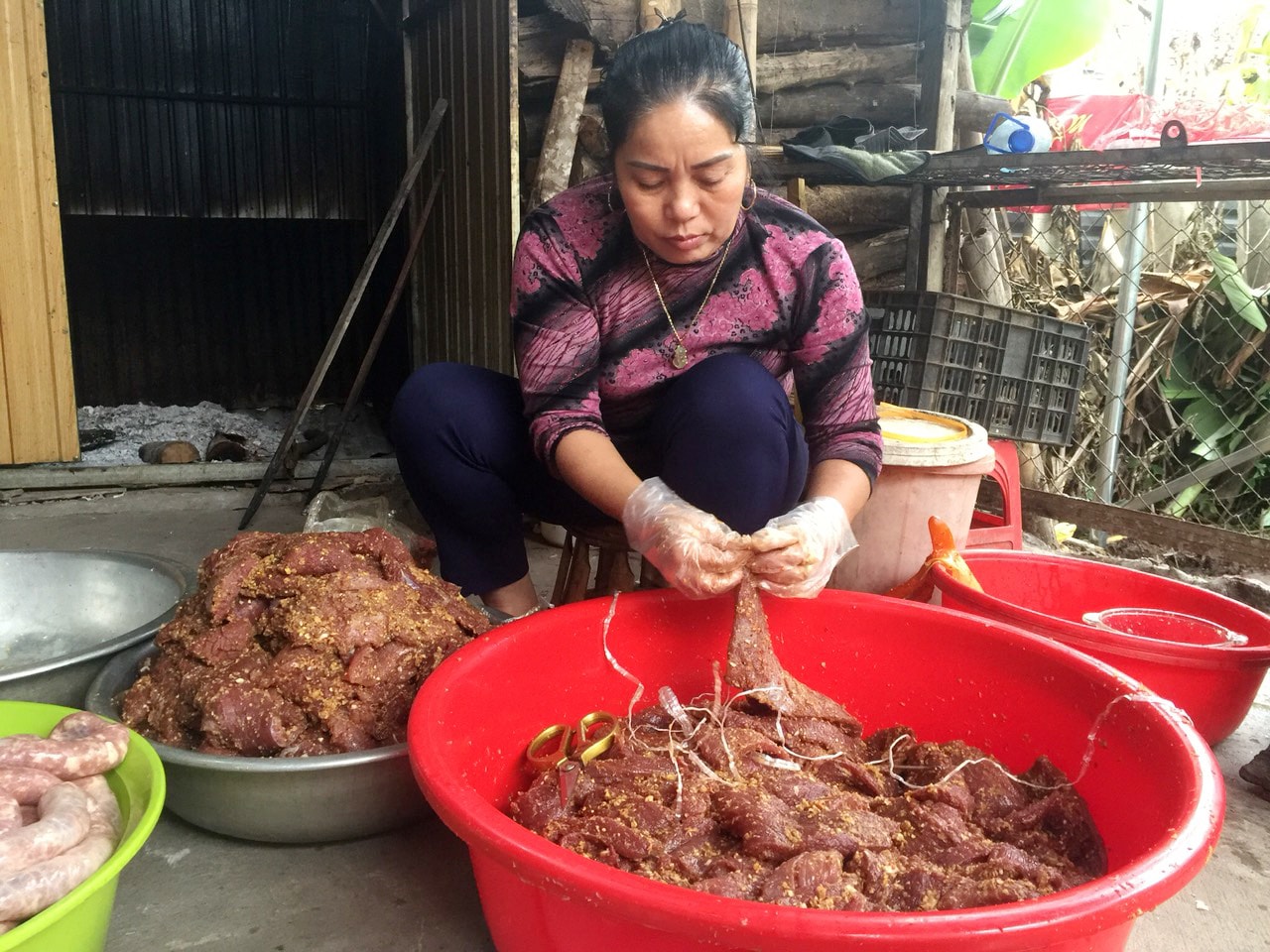 |
| On average, every Tet, Ms. Thao Duong's beef jerky production facility sells about 1 ton of various types of smoked products to the market. Photo: Thanh Phuc |
Ms. Thao said that on average, each Tet, her production facility sells about 1 ton of beef jerky, smoked pork, and Chinese sausage to the market.
“The prices of smoked meat remain the same as every year: Beef jerky is 900,000-1.1 million VND/kg, pork jerky is 600,000 VND/kg, smoked pork belly is 400,000 VND/kg. With the products being recognized as 3-star OCOP, participating in trade promotion programs and having supermarkets sign contracts to purchase products, it has created opportunities for the specialty of the highlands of Tuong Duong to spread and reach a large number of customers, so this Lunar New Year, the number of orders has increased sharply,” Ms. Thao said excitedly.
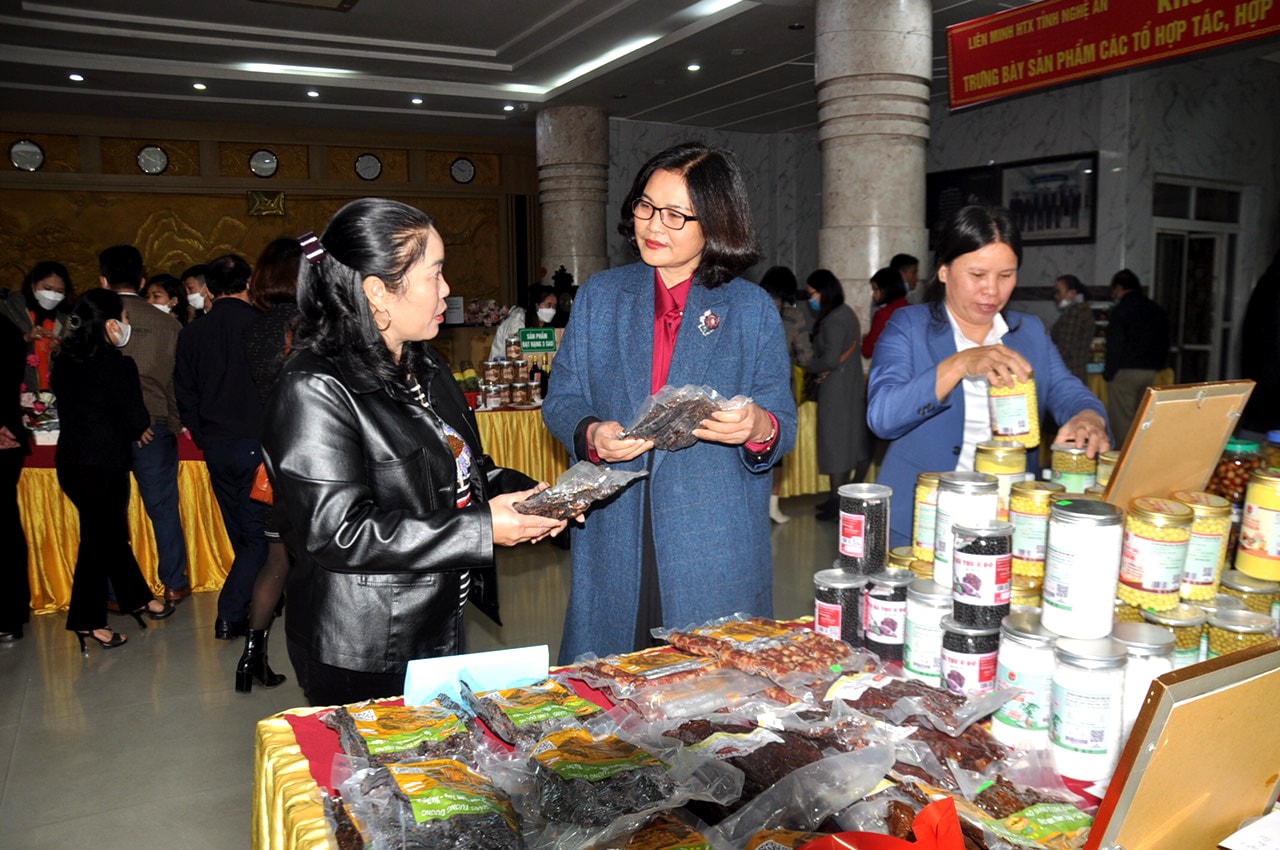 |
| Highland specialties are becoming more and more known to consumers thanks to trade promotion. Photo: Thanh Phuc |
Chinese sausage is a delicacy of the highland people, which is popular in the market, especially during Tet. Having made Chinese sausage for decades, Ms. Truong Thi Bao, Minh Tien village (Chau Hanh commune, Quy Chau) said: "Currently, there are many Chinese sausages on the market, especially from the southern provinces. However, Chinese sausages are not popular in the market.Thai Quy Chau peoplehas its own characteristics, not mixed with any other product on the market. The raw materials to make sausage are fresh, delicious pork intestines and meat. In addition to the main ingredients such as pork and lard, sugar, salt, pepper, and garlic are indispensable. In particular, the casing to make sausage is the young pig's intestines, not the ready-made collagen casing; the sausage is hung in the kitchen for 3 days, then dried in the sun, not using an electric dryer, so it has its own unique flavor.
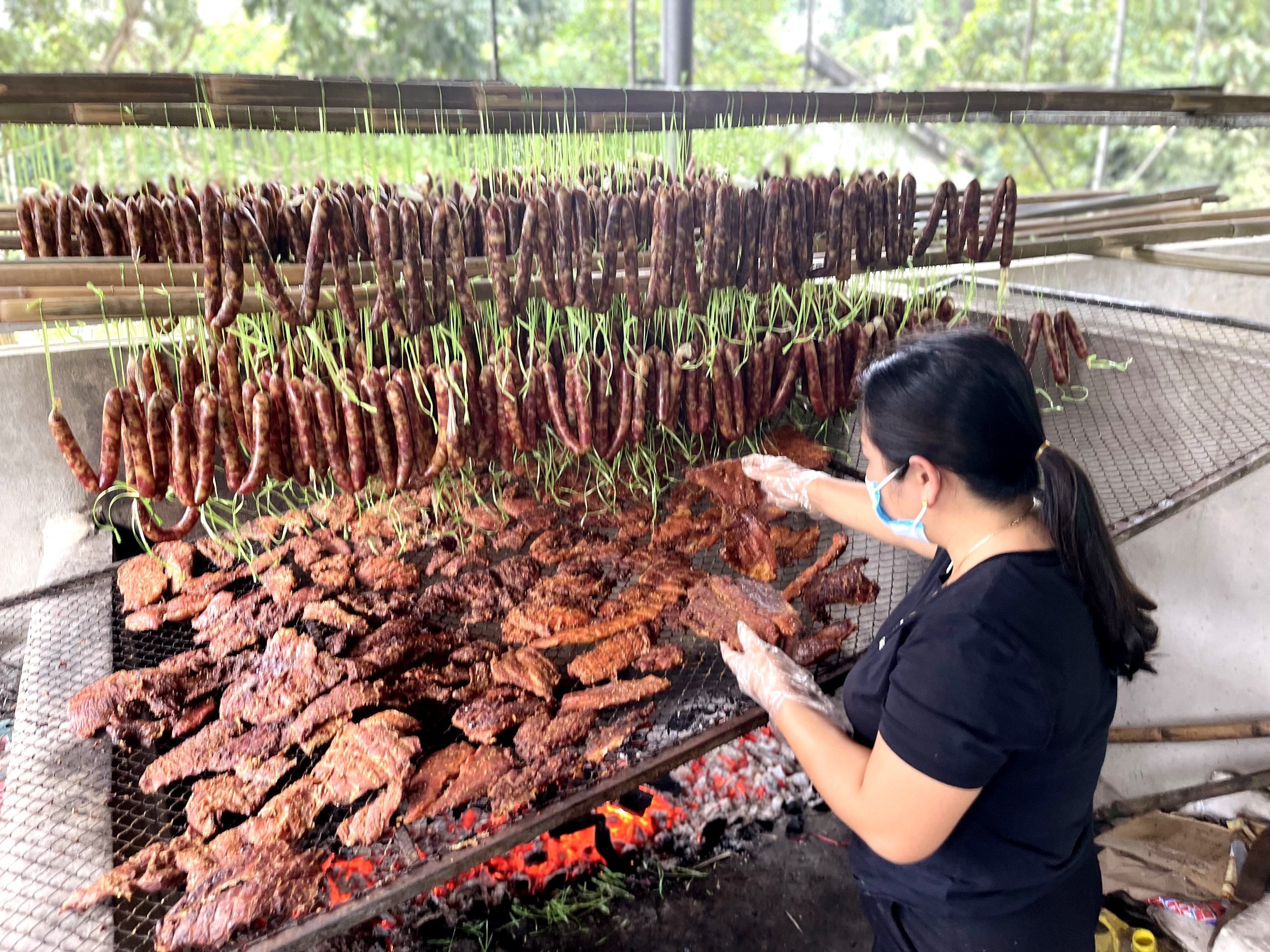 |
| Completely manual steps combined with traditional secrets create the unique flavor of the smoked dishes of the Nghe An mountain people. Photo: Thanh Phuc |
Chinese sausages are made and sold all year round, but the peak season is still in the cold season, from October to the end of the Lunar New Year. On average, each Tet, Ms. Bao's family sells 200-300 kg of Chinese sausages to the market, bringing in a stable income and extra expenses for Tet preparations.
Nowadays, thosedishes of Tay Nghe peoplehave become specialties, goods that are favored by many people. These specialties have become dishes in parties to entertain guests, family reunion meals and Tet gifts. To ensure food hygiene and safety, now, in addition to manual processing stages to ensure the characteristic flavor, packaging and preservation have been done by machine.
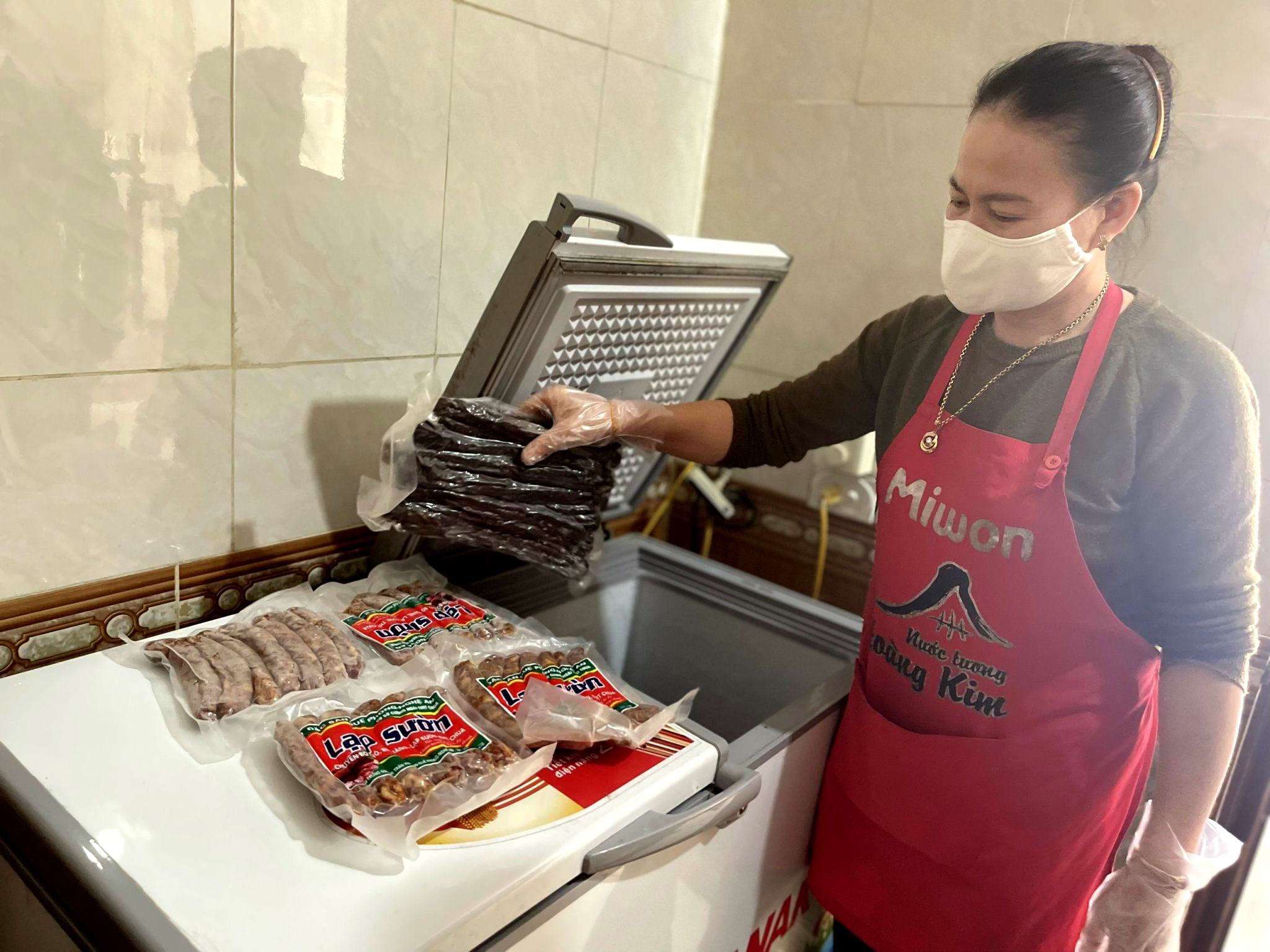 |
| The kitchen products are now packaged, vacuum-sealed and fully labeled. Photo: Thanh Phuc |
The products are vacuum-packed, have labels, expiry dates, and QR codes to trace their origins, creating trust for customers. Thanks to that, in addition to individual orders in the province, these specialties are now being sold in clean food stores, connected supermarkets, and ordered by customers in Hanoi, Ho Chi Minh City, Da Nang, etc.
